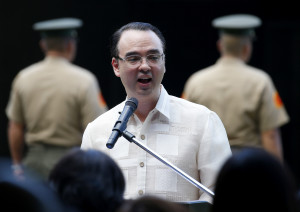President Duterte’s forging close relations with Russia, which opens the door for improved defense and economic partnership between the two countries, shows he is a pragmatist who would cultivate ties with any country that would help the Philippines, according to political analyst Clarita Carlos.
Carlos, a retired political science professor, sees Mr. Duterte’s solidifying Manila’s relationship with Moscow with an official visit this week as a good thing.
Russia, which is pivoting toward Asia, has promised to help the Philippines, she noted.
Mr. Duterte’s reaching out to Russia means that foremost among his considerations is how this will benefit the Philippines, she said.
“[It shows] that we’re very pragmatic in our foreign policy. Whichever country would take our mangoes, provide jobs, invest in our infrastructure, we would improve ties with it,” Carlos told the Inquirer in a phone interview.
Pragmatism over ideology
Mr. Duterte is more pragmatic than ideologic, she said.
This ties in with the President’s desire to bring home Filipino migrant workers, she said.
Mr. Duterte is improving the Philippines’ relationship with different countries to get more economic partners and further boost the economy.
He needs this so that he can offer jobs in the Philippines to Filipinos abroad, who he wants to come home, she said.
Mr. Duterte is an admirer of Russian President Vladimir Putin.
His courtship of Russia comes as he loosens ties between the Philippines and its longtime ally the United States.
Mr. Duterte has distanced himself from Washington because of its criticism of his brutal war on drugs during the Obama administration, though he has since spoken more warmly of US President Donald Trump.
The United States last year deferred the renewal of a $400-million antipoverty package to the Philippines over human rights concerns, but Mr. Duterte scoffed at the move, saying the Philippines could do without it.
More recently, Mr. Duterte approved the recommendation of his finance secretary to reject a $280-million aid package from the European Union because it came with conditions viewed as allowing it to interfere with the Philippines’ internal affairs./rga


